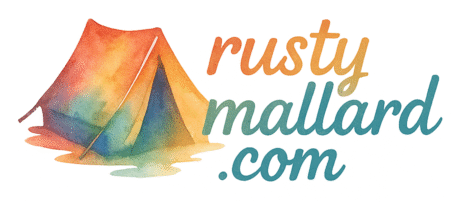Camping for the first time can be an exciting adventure, but it’s also easy to make mistakes. Whether you’re setting off on a weekend getaway or planning a longer stay in the great outdoors, it’s important to be prepared. The last thing you want is to spend your time in discomfort, frustrated, or even at risk because of avoidable errors. In this article, we’ll highlight 10 common camping mistakes and provide helpful tips on how to avoid them for a stress-free camping experience. By following these recommendations, you’ll be ready for your adventure and able to enjoy everything nature has to offer.
1. Not Researching Your Campsite Location
A common mistake for first-time campers is failing to research the campsite location thoroughly. While it may seem straightforward, knowing the lay of the land is crucial for a successful camping trip.
Understanding Your Destination
Before you pack your gear, you must know where you’re going. Different campsites offer varying amenities, difficulty levels, and access to activities like hiking or fishing. Whether you’re planning to camp at a popular national park or a secluded spot, research ahead of time to avoid unpleasant surprises. A simple Google search or a visit to websites like Camping Destinations can help you make an informed choice.
Check Local Weather and Terrain
The weather can change unexpectedly, and some locations are prone to difficult terrain. Make sure to check weather forecasts before your trip, and consider whether your destination will be accessible in all conditions. If you’re camping in an area with rough terrain, it’s best to know in advance what kind of gear you’ll need. If you’re unsure, there are great camping resources online, like Camping Tips, that offer advice on how to navigate challenging environments.
2. Overpacking or Underpacking
Packing for a camping trip is an art. It’s easy to either overpack and carry unnecessary items or underpack and miss essentials.
Packing Essentials for Your First Camping Trip
When it comes to packing, focus on essentials. This includes a tent, sleeping bag, clothing appropriate for the weather, a first-aid kit, and some tools for cooking. Check out websites like Camping Gear for a more detailed list of must-have items.
How to Create a Packing List
Create a packing list to ensure you bring everything you need without overloading your backpack. Take the time to review your list multiple times and consider the activities you’ll be doing to pack accordingly. Don’t forget the little things, like a flashlight or sunscreen, which are easy to overlook but important for comfort and safety.
3. Ignoring the Importance of Good Gear
Quality gear can make a significant difference in your camping experience, especially for beginners.
Investing in Quality Camping Gear
Camping gear that is comfortable, durable, and weather-resistant can save you time, money, and hassle. For instance, a high-quality sleeping bag will ensure you stay warm and comfortable at night, while sturdy footwear will prevent injuries on rough terrain. Make sure to purchase from reputable brands and consider borrowing gear for your first trip to keep costs down.
Why Camping Gear Matters for Comfort and Safety
Investing in good camping gear is not just about comfort; it’s also about safety. You’ll be exposed to the elements, so having gear that stands up to weather conditions is essential. Visit resources like Rustic Lifestyle for product reviews and recommendations that can help guide your gear choices.
4. Forgetting to Plan Meals Ahead of Time
When you’re in the wilderness, cooking can be one of the most enjoyable parts of camping, but it requires planning.
Why Camping Recipes Matter
Planning your meals ahead of time helps you avoid last-minute decisions that could lead to unhealthy or unappetizing food. Choose meals that are easy to cook over a campfire and require minimal ingredients. Check out Camping Recipes for inspiration and ideas for simple yet delicious camping meals.

How to Plan Easy and Delicious Camping Meals
A great camping meal doesn’t need to be complicated. Prepping food at home and packing it in resealable bags or containers can save you time. Think about easy-to-cook options like foil packets, sandwiches, or stews that can be made over the campfire.
5. Not Practicing Setting Up Your Tent
Setting up a tent is one of those things that seems easy until you’re out in the wilderness and trying to do it for the first time.
The Importance of Tent Practice
Before your trip, practice setting up your tent at home. Doing this will help you become familiar with the process and avoid frustration when you’re in a new environment. Many campers find themselves struggling with tent setup, especially in windy or rainy conditions.
Avoiding Tent Setup Frustration
You can also watch tutorial videos or read step-by-step guides to help you set up your tent with ease. This will allow you to focus on enjoying your trip rather than worrying about the logistics of your shelter.
6. Underestimating the Importance of Camping Safety
Camping involves risks, so it’s essential to take camping safety seriously.
Camping Safety Basics
Basic camping safety includes knowing how to store food to avoid attracting animals, understanding fire safety, and having the right equipment for emergencies. Familiarize yourself with the campsite’s rules and regulations to ensure you’re not breaking any laws or endangering the environment.
How to Stay Safe in the Wilderness
Be sure to pack a first-aid kit, know how to use it, and have a plan in case of an emergency. Don’t forget to carry a map or compass, especially if you’re venturing into more remote areas. For more details on camping safety, visit Camping Safety.
7. Failing to Prepare for the Weather
Weather conditions can change drastically in the wild, so it’s essential to prepare for all possibilities.
How to Prepare for Different Weather Conditions
Check the weather forecast for your camping area before you leave. Even if the forecast looks clear, pack clothing layers and waterproof gear to protect yourself in case the weather turns. A quality rain jacket or windbreaker is always a good idea.
Weather-Resistant Clothing and Gear
Make sure your gear is weather-resistant. Camping in the rain or cold can be uncomfortable without the right equipment, so invest in high-quality, weather-appropriate clothing and shelter.
8. Not Bringing Enough Water or Hydration Supplies
Water is the most essential resource when camping. Failing to bring enough could leave you dehydrated and in danger.
Water Needs for First-Time Campers
Always bring more water than you think you’ll need, especially if you’re going to a remote area. It’s also a good idea to bring water purification tablets or filters in case you need to source water from a stream or river.
How to Stay Hydrated While Camping
Remember to drink water regularly throughout the day, not just when you’re thirsty. Staying hydrated will keep you energized and ready for outdoor adventures.
9. Forgetting to Follow Leave No Trace Principles
It’s crucial to respect nature and leave the campsite just as you found it.
What Are Leave No Trace Principles?
Leave No Trace (LNT) principles are a set of guidelines that help preserve the environment while camping. These include practices like packing out all waste, staying on established trails, and avoiding damage to natural habitats.
How to Leave the Campsite as You Found It
Follow these principles to ensure future campers have the same enjoyable experience. For more tips on eco-friendly camping, check out Nature Education.
10. Not Having a Backup Plan for Emergencies
Even the best-laid plans can go awry, so it’s essential to be prepared for emergencies.
Creating a Camping Emergency Plan
Make sure you have a contingency plan for dealing with accidents, bad weather, or getting lost. Share your plans with a friend or family member who is not going on the trip.
Essential First-Aid Tips for Campers
Learn basic first-aid skills before your trip. Knowing how to handle minor injuries can make a big difference in an emergency.
Conclusion: Enjoying Your First Camping Experience
Your first camping trip should be fun and memorable, not stressful or dangerous. By avoiding common mistakes, you’ll be better prepared to enjoy the great outdoors and create lasting memories. With the right planning and gear, your adventure can be everything you imagined and more. Remember, camping is about connecting with nature and learning new skills, so embrace the experience and let it bring you closer to the outdoors.
FAQs
1. What should I pack for my first camping trip?
Make sure to bring a tent, sleeping bag, suitable clothing, cooking gear, and essentials like food, water, and a first-aid kit. Don’t forget to check out Camping Gear for a full list of must-have items.
2. How can I stay safe while camping?
Always follow safety guidelines, be aware of your surroundings, and carry a first-aid kit. For more tips, visit Camping Safety.
3. What are Leave No Trace principles?
Leave No Trace (LNT) principles help preserve the environment by promoting responsible outdoor practices, like packing out trash and staying on trails. Learn more about it on Nature Education.
4. How do I plan meals for a camping trip?
Plan simple, easy-to-make meals that don’t require a lot of ingredients. Check out Camping Recipes for some great ideas.
5. Should I bring extra water while camping?
Yes, always bring more water than you think you’ll need, and consider bringing a water filtration system just in case.
6. How can I prepare for bad weather while camping?
Check weather forecasts and pack appropriate clothing for all weather conditions. Make sure your gear is waterproof and durable.
7. What should I do if I get lost while camping?
Stay calm, stay put, and use a map or compass to find your way. Always let someone know your plans before you head out into the wilderness.
4o mini

